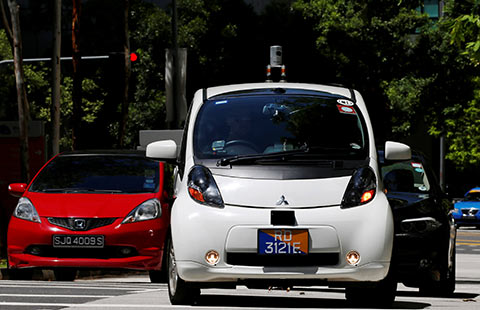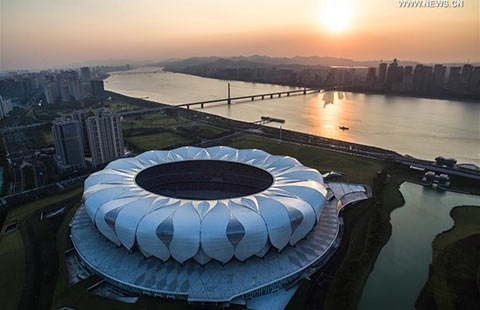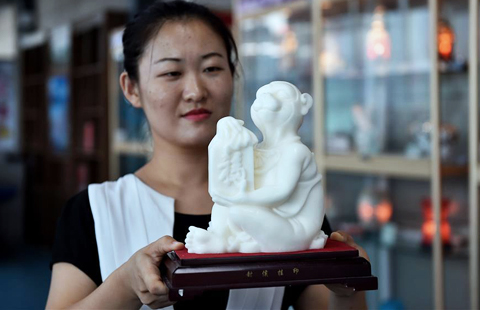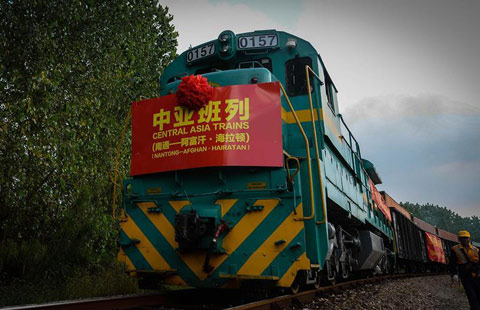G20 should champion innovation, greater integration, says Argentine president
(Xinhua) Updated: 2016-08-27 11:13BUENOS AIRES - The upcoming Group of 20 (G20) Summit of the world's leading economies should champion innovation and greater integration as a means of achieving sustainable economic development, according to Argentina's President Mauricio Macri.
In the lead up to the Sept. 4-5 summit in Hangzhou, China, Argentina's head of state spoke with Xinhua about what's on the agenda of the meeting, which takes place under the banner "Building an innovative, strengthened, interconnected and inclusive global economy."
Host China is set to lay out its proposal to spur growth through innovation, and other measures to jump start the flagging world economy, such as structural reforms, better global economic and financial governance, more effective cooperation in finance, taxation, energy and the fight against corruption, as well as renewing trade and investment.
Speaking from the presidential residence of Olivos, some 20 km north of the capital Buenos Aires, Macri said he hoped leaders at the summit can "contribute to the central commitments the world is taking on, which range from combating climate change, organized crime, and especially terrorism and drug trafficking to the struggle to build a more inclusive world with better employment and development opportunities. In Argentina, I am committed to fighting poverty during my presidency."
The annual gathering can address those concerns and build consensus as to strategy, he said.
"The G20's role is to try to serve as a forum where views and alternative solutions can be exchanged, but the dynamic of the world economy transcends what is happening at the G20. What we are seeking is to try to understand how we can affect the technological revolution taking place, how we can affect the creation of new jobs, given that innovation is slowly replacing traditional jobs. We are seeking the same thing, that is generating quality jobs for Argentinians," said Macri.
The multilateral forum can also strengthen the relationship between the participating countries, he said.
"It's a think tank that serves, in bilateral meetings, to promote ties and mutual knowledge between members, and trust, which is such an important factor," said Macri.
As part of the G20's push for innovation, said Macri, member countries need to foster education "and the training of our youth."
"The commitment to provide global sustainability, which generates significant opportunities for investment and development of green technologies," can help drive that effort, he added.
Discussions at the G20 will center on four key themes: innovating the existing model of economic growth, improving financial governance, spurring international trade and investment, and promoting inclusive development.
Argentina's "main concerns" going in to the summit, said Macri, "are reducing poverty, defeating drug trafficking and protecting the environment. We are going to the summit with this line of thinking, to propose that for all these (challenges) the best thing is to promote and strengthen integration at the regional level and at the global level.
"Clearly, that is the right path, to find complementarity between our countries, to work together as a network against drug trafficking and terrorism. In all areas, expanding joint action is to our benefit," said Macri.
"Based on our long-term goals, we have to try to find ways to get results in the short term," he added.
Argentina will host the G20 Summit in 2018, following next year's gathering in Hamburg, leading Macri to say he was "very honored to belong to the troika" formed also by China and Germany.
Hosting the summit "is a huge challenge for us. We humbly hope to be able to make a contribution to the agenda of problems with concrete solutions," said Macri.
"Our world needs to reduce poverty, improve levels of education, improve immigration and find a solution to the migratory flows ... generated by so many conflicts, and continue to fight terrorism in pursuit of a world at peace. These are all things we want to make our humble contribution to," said Macri.
The G20 gathers the world's 20 largest economies, including Germany, Saudi Arabia, Argentina, Australia, Brazil, Canada, China, South Korea, the United States, Russia, France, India, Indonesia, Italy, Japan, Mexico, Britain, South Africa, Turkey and the European Union.
- G20 should champion innovation, greater integration, says Argentine president
- Good luck for the G20 forum, good luck to Hangzhou
- Experts expect localization to boost China-ASEAN industrial capacity cooperation
- Cuba, China sign new accords to boost economic cooperation
- Brazil to woo Chinese investors at G20 Summit
- World's first self-driving taxis debut in Singapore
- China's industrial profit growth speeds up
- Hangzhou, host city of G20 Summit


















